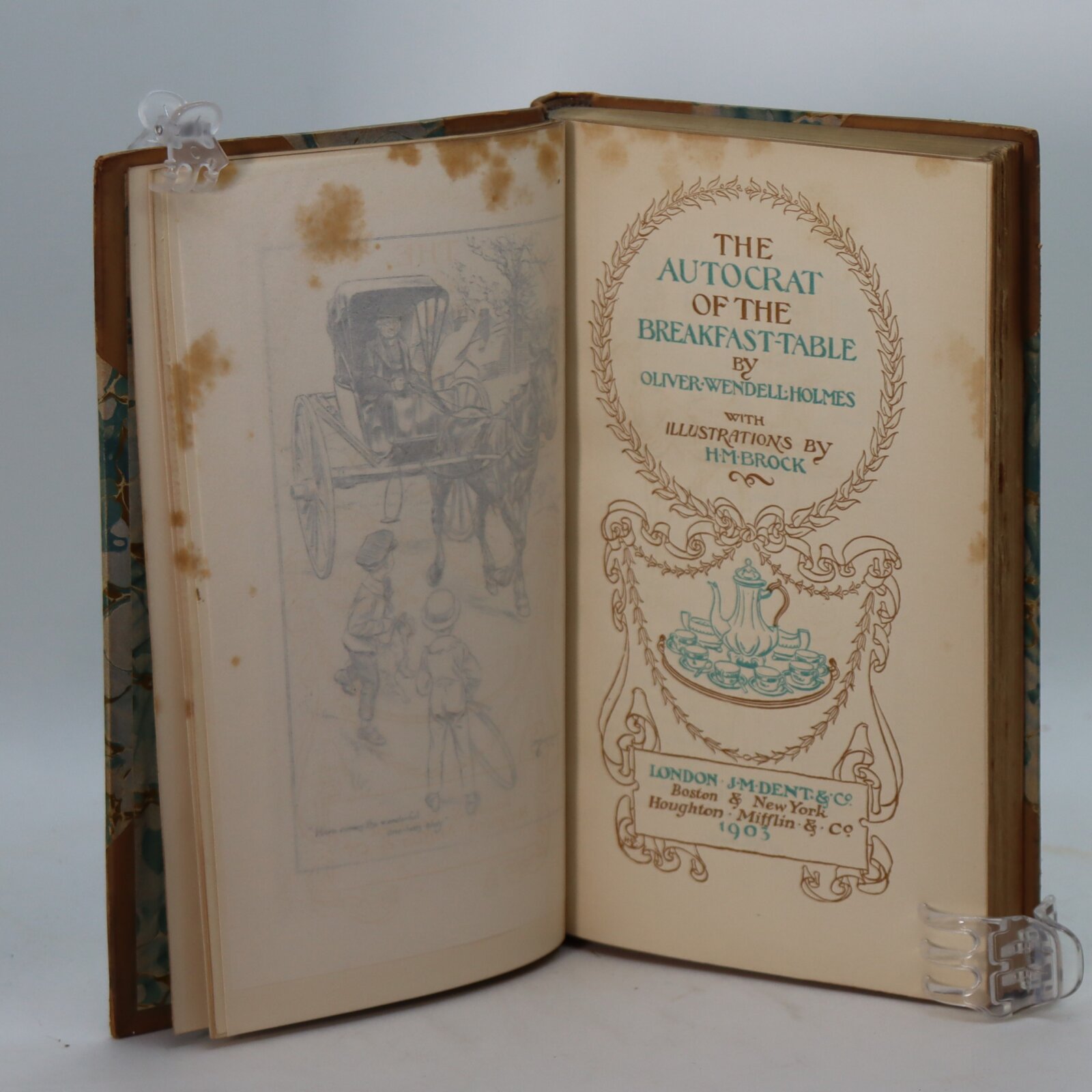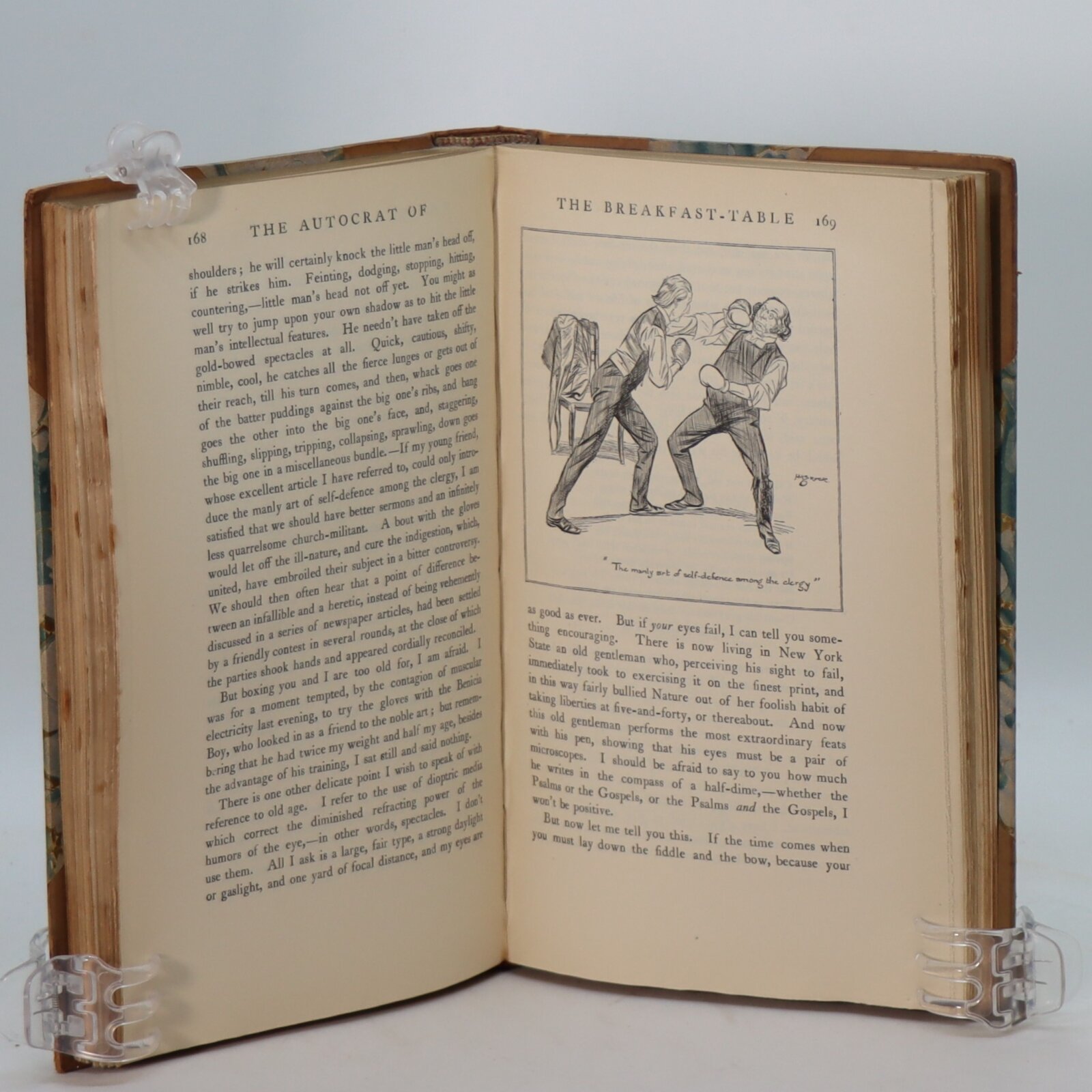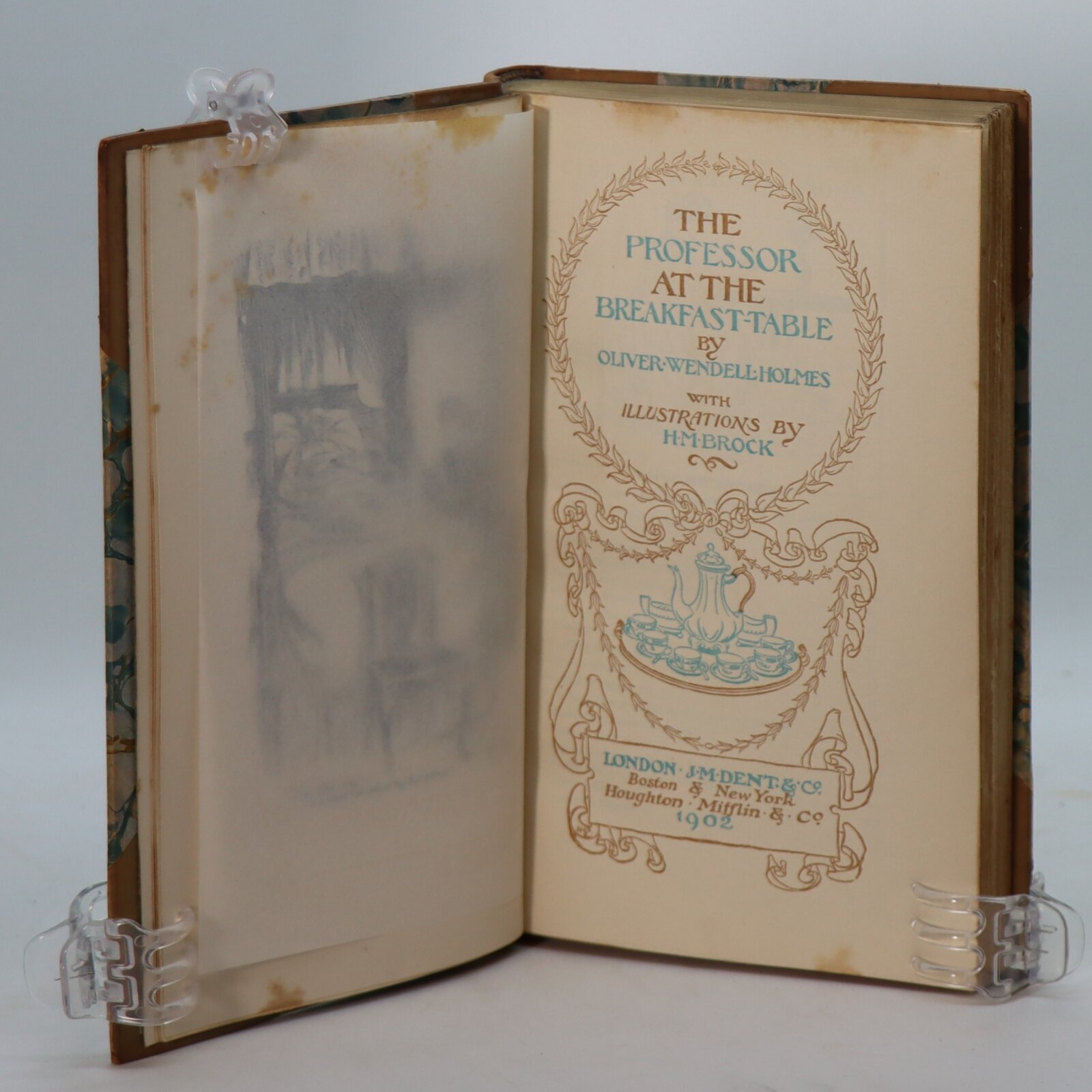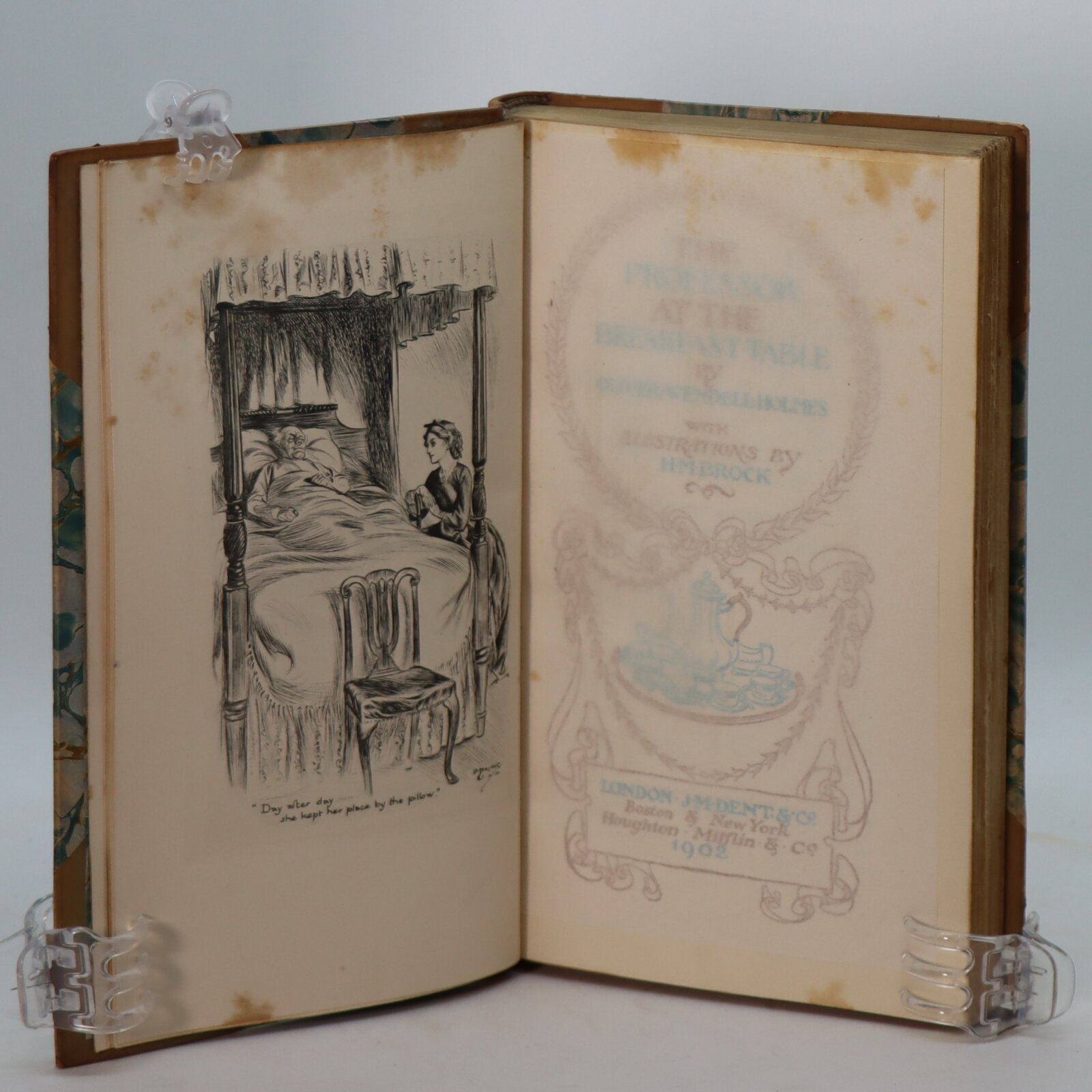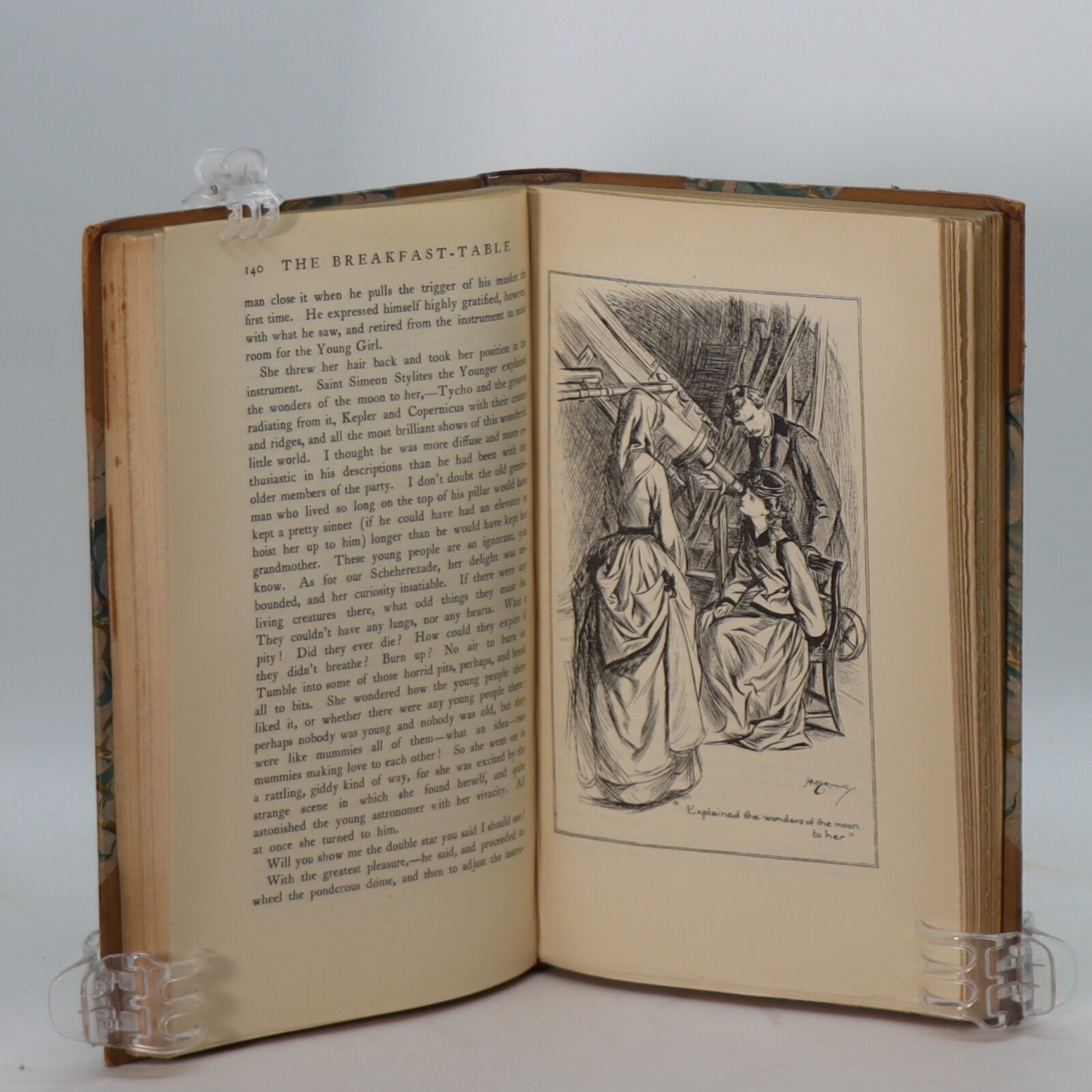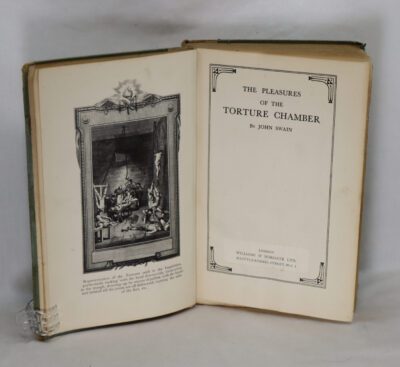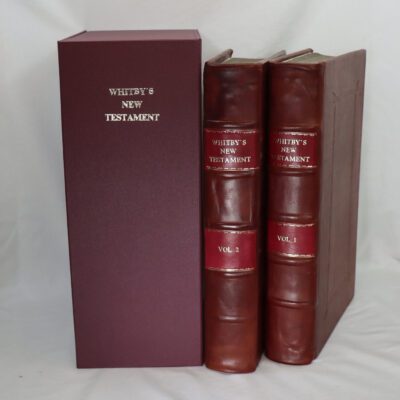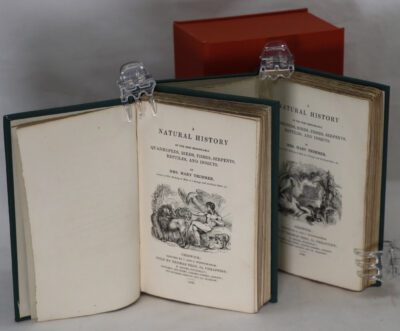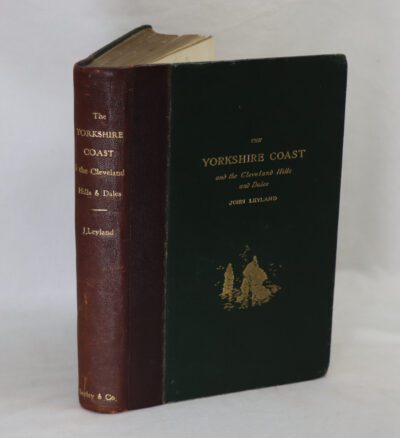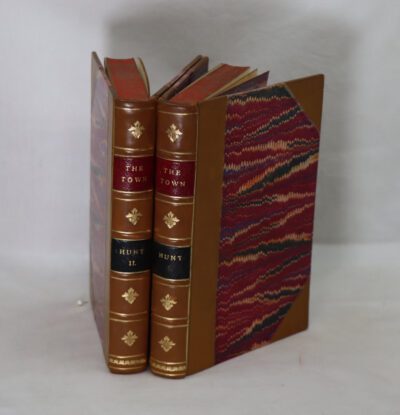The Autocrat , The Professor, The Poet at the Breakfast Table. Three Books.
By Oliver Wendell-Holmes
Printed: 1902
Publisher: J M Dent. London
| Dimensions | 12 × 20 × 2.5 cm |
|---|
Language: Not stated
Size (cminches): 12 x 20 x 2.5
Condition: Fine (See explanation of ratings)
FREE shipping
Your items
Item information
Description
Three separate books. Blue, green and yellow marbled boards. Spines are tan calf ( faded from green) with gilt titles ,raised banding with gilt wavy edging and flower emblems. Dimensions are for one volume.
F.B.A. provides an in-depth photographic presentation of this item to stimulate your feel and touch. More traditional book descriptions are immediately available
Very well crafted books
The Autocrat of the Breakfast-Table (1858) is a collection of essays written by Oliver Wendell Holmes Sr. The essays were originally published in The Atlantic Monthly in 1857 and 1858 before being collected in book form. The author had written two essays with the same name which were published in the earlier The New-England Magazine in November 1831 and February 1832, which are alluded to in a mention of an “interruption” at the start of the first essay.
The essays take the form of a chiefly one-sided dialogue between the unnamed Author and the other residents of a New England boarding house who are known only by their profession, location at the table or other defining characteristics. The topics discussed range from an essay on the unexpected benefits of old age to the finest place to site a dwelling and comments on the nature of conversation itself. The tone of the book is distinctly Yankee and takes a seriocomic approach to the subject matter.
Each essay typically ends with a poem on the theme of the essay. There are also poems ostensibly written by the fictional disputants scattered throughout.
Holmes’s essays were well received by critics and readers alike and their inclusion in The Atlantic Monthly in 1857 helped secure that magazine’s early success. In book form, The Autocrat of the Breakfast-Table sold ten thousand copies in only three days. It has become Holmes’s most enduring work.
Holmes’s friend and fellow writer James Russell Lowell believed the protagonist switch from “Autocrat” to “Professor” in the sequel was a good change, writing to Holmes, “I like the new Professor… better than the old Autocrat.” But Lowell warned him about some of the theological commentary in the book: “The Religious Press… will be at you, but after smashing one of them you will be able to furnish yourself with a Sampson’s [sic] weapon for the rest of the Philistines.”
Oliver Wendell Holmes ; August 29, 1809 – October 7, 1894 was an American physician, poet, and polymath based in Boston. Grouped among the fireside poets, he was acclaimed by his peers as one of the best writers of the day. His most famous prose works are the “Breakfast-Table” series, which began with The Autocrat of the Breakfast-Table (1858). He was also an important medical reformer. In addition to his work as an author and poet, Holmes also served as a physician, professor, lecturer and inventor and, although he never practiced it, he received formal training in law.
Born in Cambridge, Massachusetts, Holmes was educated at Phillips Academy and Harvard College. After graduating from Harvard in 1829, he briefly studied law before turning to the medical profession. He began writing poetry at an early age; one of his most famous works, “Old Ironsides”, was published in 1830 and was influential in the eventual preservation of the USS Constitution. Following training at the prestigious medical schools of Paris, Holmes was granted his Doctor of Medicine degree from Harvard Medical School in 1836. He taught at Dartmouth Medical School before returning to teach at Harvard and, for a time, served as dean there. During his long professorship, he became an advocate for various medical reforms and notably posited the controversial idea that doctors were capable of carrying puerperal fever from patient to patient. Holmes retired from Harvard in 1882 and continued writing poetry, novels and essays until his death in 1894.
Surrounded by Boston’s literary elite—which included friends such as Ralph Waldo Emerson, Henry Wadsworth Longfellow, and James Russell Lowell—Holmes made an indelible imprint on the literary world of the 19th century. Many of his works were published in The Atlantic Monthly, a magazine that he named. For his literary achievements and other accomplishments, he was awarded numerous honorary degrees from universities around the world. Holmes’s writing often commemorated his native Boston area, and much of it was meant to be humorous or conversational. Some of his medical writings, notably his 1843 essay regarding the contagiousness of puerperal fever, were considered innovative for their time. He was often called upon to issue occasional poetry, or poems written specifically for an event, including many occasions at Harvard. Holmes also popularized several terms, including Boston Brahmin and anesthesia. He was the father of Justice Oliver Wendell Holmes Jr. of the Supreme Court of the United States.
Want to know more about this item?
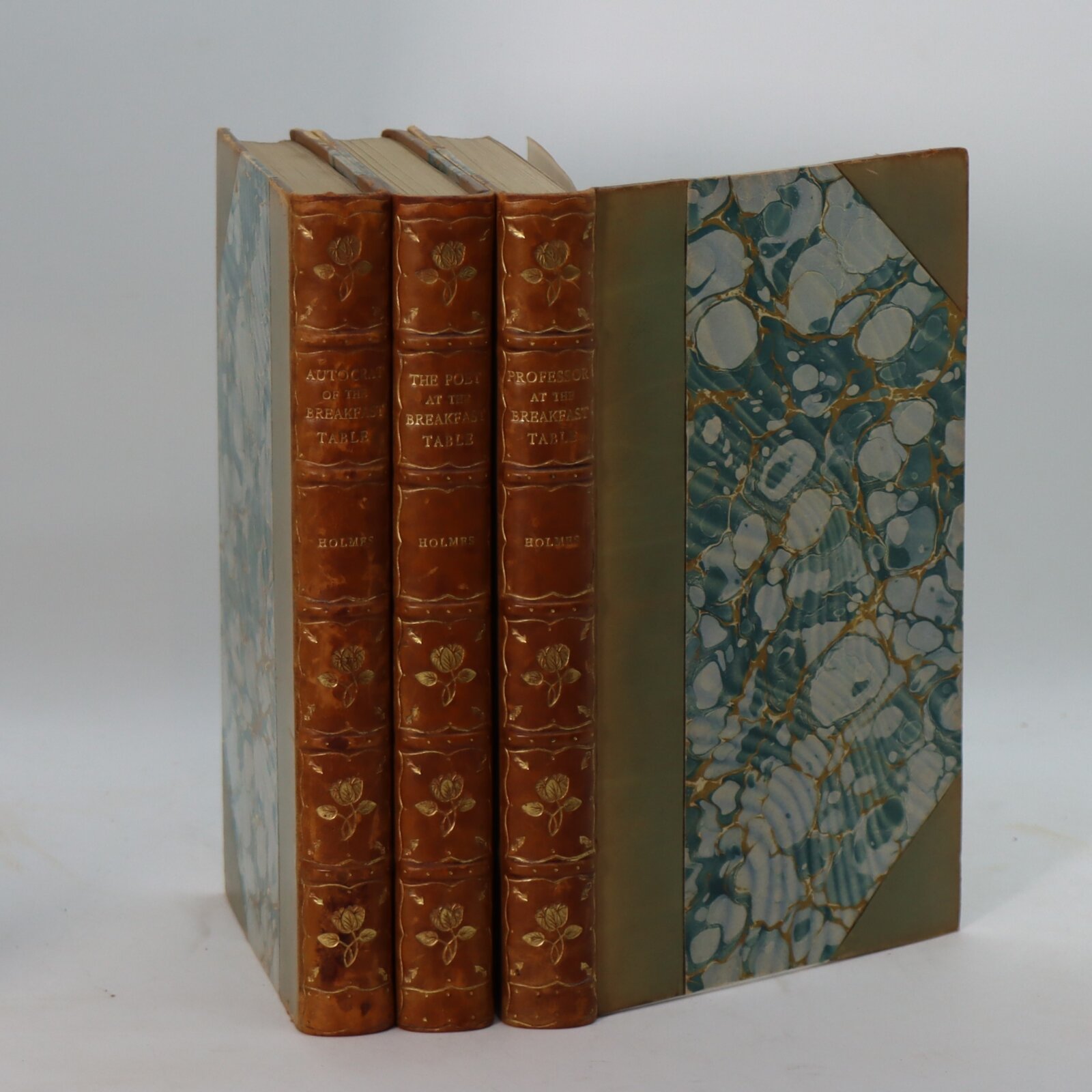
Related products
Share this Page with a friend

